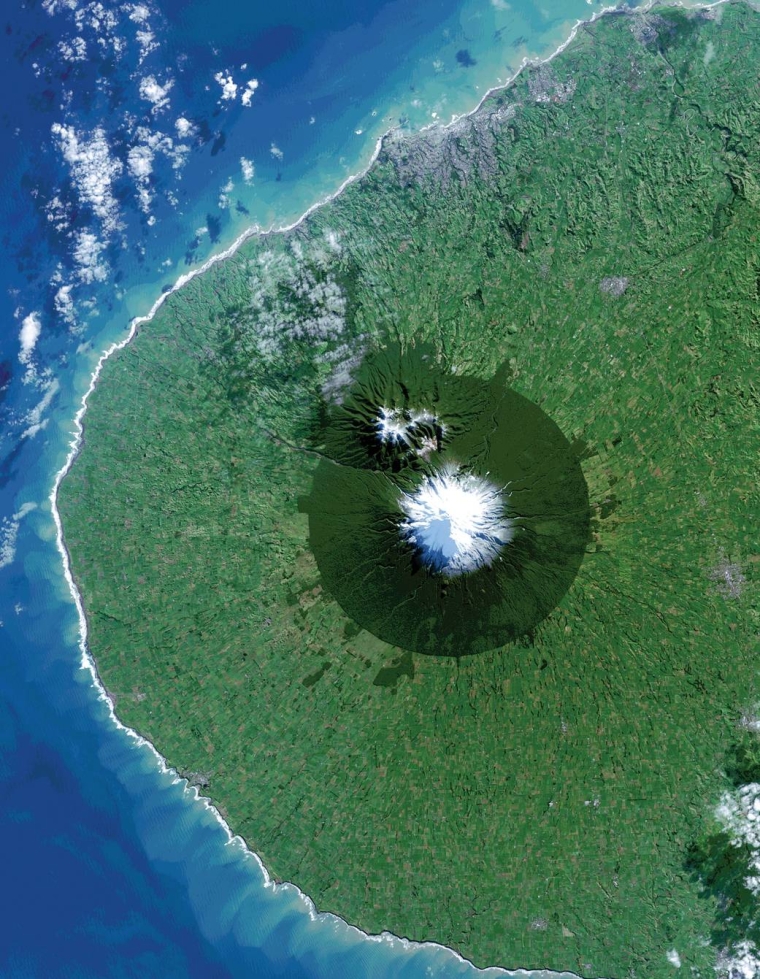
The coalition government has brought in its promised national security legislation of ground based space infrastructure under urgency, amid intelligence reports that foreign adversaries have tried to establish their own Earth stations in New Zealand, the minister of space, Judith Collins, announced.
Called the Outer Space High Altitude Activities Amendment Bill, the new law will apply to all in-scope operators in New Zealand. This includes those operating infrastructure prior to the new regime coming into affect.
Collins signalled in April that a new regulatory regime would start this month, "to deter foreign interference in New Zealand's infrastructure that carry out tracking and control of spacecraft, space surveillance and the and the transfer of data to and from spacecraft."
The minister of space said the new law will serve as a deterrent, to send a clear message that New Zealand takes its national security seriously and will act if it comes under threat.
Last year, the New Zealand Intelligence Service published a threat report, pointing to deceptive conduct by foreign actors:
In recent years, New Zealand organisations have been approached by a small number of entities seeking to develop space infrastructure in our territory. These entities often claim the infrastructure will be used for civilian research purposes, but it was subsequently found in each case that what was proposed could have assisted foreign military activity that could have harmed New Zealand’s interests. The full capabilities, and some of the affiliations of these entities, were deliberately hidden. If these projects had gone ahead, we would have inadvertently allowed another country to install equipment in New Zealand with a plausible military or intelligence function. To have done so would have risked New Zealand’s sovereignty. By hiding their affiliations, the foreign entities undermined New Zealand’s ability to make informed decisions based on our national security and national interest.
A set of regulations will be put into place later this year, to go with the new law, and a transition period until March 1 next year will apply to operators.
Consumer products such as satellite phones, TV or broadband won't be covered by the law.
The ministry of business, innovation and employment (MBIE) will administer the new law and will employ enforcement officers with powers to inspect facilities, assess security arrangements. Ignoring the regulations will be an offence punishable with a $50,000 fine and/or up to a year in prison, and the responsible minister can also issue dispersal orders requiring a person to divest their interest in ground based space infrastructure.
Equipment can also be seized under the new law, and entities can be fined up to $250,000.
The new legislation takes effect from July 29.
More space developments funded
Earlier this month, Collins announced that the Royal New Zealand Air Force had re-activated its No 62 Squadron as the nation's first dedicated space unit.
“The squadron’s initial focus will be on monitoring, analysing and understanding space activity to safeguard national and international interests,” Collins said. The staffing of the squadron, and funding, has not been disclosed.
Prior to that, Collins and the Science, Innovation and Technology minister Shane Reti announced a $5.6 million partnership with the United States National Aeronautics and Space Administration (NASA). This will help fund five new joint NZ-NASA research projects for Earth observation, with the US agency contributing satellite data, advanced tools and technology, and $1.9 million in staff time and expertise.
Among the projects are Te Mātai Pū o te Kea, which is advanced remote sensing technology deployed with Kea Aeropace's Atmos high altitude uncrewed aircraft, a satellite multi-scale hydrologic framework for Te Hiku ō Te Ika Wairere Ngahere, and monitoring vegetation and geothermal interactions from space.
A near-real-time fuel moisture system for wildfire and drought to build a predictive fire model with remote sensing, and machine learning for forest mapping, are two other NZ-NASA projects.
This week, Collins also announced $5.85 million in funding for the Tāwhaki National Aerospace Centre Joint Venture between the Crown and two Rūnanga, Te Taumutu and Wairewa, which has built infrastructure at Canterbury's Kaitorete Spit, such as a sealed runway and hangar.
The JV was established during the Sixth Labour government in 2021. Collins said it has a crucial role in the government's drive to grow NZ's space and advanced aviation sectors.

We welcome your comments below. If you are not already registered, please register to comment
Remember we welcome robust, respectful and insightful debate. We don't welcome abusive or defamatory comments and will de-register those repeatedly making such comments. Our current comment policy is here.